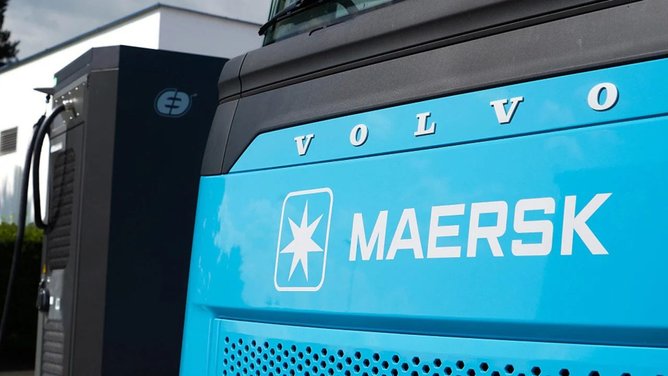Electric vehicles (EVs) are becoming increasingly prominent in freight transport, with battery-electric trucks now operating on established routes across Europe.
As battery technology improves and charging infrastructure expands, shippers are integrating EVs into their fleets to reduce emissions, lower fuel costs, and enhance air quality. This shift is moving beyond pilot projects, embedding electric freight into daily logistics operations.
For procurement and supply chain professionals, the transition highlights growing priorities around resilience, energy security, and regulatory compliance, especially as emissions disclosure and decarbonisation obligations become more stringent.

Electrification at Work: Kimberly-Clark and Maersk
A practical example is emerging in the Czech Republic, where consumer goods company Kimberly-Clark is partnering with logistics giant A.P. Moller Maersk. Together, they operate a fully-electric freight route between Kimberly-Clark’s plant in Jaromer and Maersk’s warehouse in Dobřenice. The 36-kilometre corridor now runs battery-electric vehicles (BEVs) on a regular schedule.
The route was selected for its predictable freight volumes and frequency, enabling both companies to test operational viability, reduce greenhouse gas (GHG) emissions, and strengthen supply chain resilience.
James Hallam, Global Climate Leader – Logistics at Kimberly-Clark, notes:
“At first glance, moving from diesel to electric vehicles didn’t appear economically viable. The key learning from this project is that success requires long-term planning.”
Despite initial cost concerns, both organisations committed to the plan. They adapted their transport model and aligned on a shared strategy rather than treating it as a one-off project.
Annamarie Gey Van Pittius, Key Client Director for Kimberly-Clark at Maersk, explains:
“This pilot marks the start of a longer-term strategy to ensure cost efficiency, lower GHG emissions, and reduce waste. It’s not a standalone project.”
Currently, one electric truck completes six round trips per day, which is projected to avoid 130 tonnes of CO₂ equivalent (CO₂e) emissions in 2025 compared with a diesel vehicle running the same route.
Operational Insights and Expansion
The pilot is generating valuable operational data that will guide future electrification decisions. Its success has already informed plans to add a second BEV and expand charging infrastructure.
For Kimberly-Clark, this prepares the company for upcoming emissions regulations. For Maersk, it demonstrates the benefits of electric freight for fast-moving consumer goods (FMCG) clients beyond environmental gains.
Industry-Wide Movement
The Kimberly-Clark and Maersk collaboration mirrors broader trends in freight electrification.
- Amazon is partnering with Daimler Benz to deploy trucks with a 500-kilometre range. Chris Roe, Managing Director of Amazon Freight, describes it as the company’s “biggest-ever order of battery electric vehicles for the European market.”
- Kuehne+Nagel is working with Milence to introduce electric trucks into daily operations. Milence is building Europe’s largest public charging network for electric HGVs, a crucial enabler for long-distance adoption.
- Carlsberg Sweden is collaborating with Einride to manage up to 40% of its southern and western Sweden transport using electric trucks throughout 2025.
These examples illustrate that shippers, carriers, and technology providers are working together to scale electric freight from pilots to long-term implementation. For procurement teams, this evolution emphasizes strategic decisions around supplier partnerships, capital investment, and readiness for emissions reporting.
Sustainable Supply Chains Under the Microscope
Industry professionals can explore these developments at upcoming events:
Procurement & Supply Chain LIVE: The Net Zero Summit – London, 4-5 March 2026
- The Scope 3 Forum | 4 March | 10:30–11:15am | Procurement & Supply Chain Stage
- Global Trade & Logistics Forum | 4 March | 2:20–3:00pm | Procurement & Supply Chain Stage
- Sustainable Supply Chains | 5 March | 2:20–3:00pm | Procurement & Supply Chain Stage
Procurement & Supply Chain LIVE: The US Summit – Chicago, 21-22 April 2026
- Sustainable Supply Chains | 21 April | 12:15–1:00pm CDT | Supply Chain Stage
- Global Trade & Logistics Forum | 21 April | 2:15–3:00pm CDT | Supply Chain Stage
To secure your tickets to both events, click here.
